News & Media
From Pretoria to Istanbul: Unisa makes its mark at Global SDG Congress
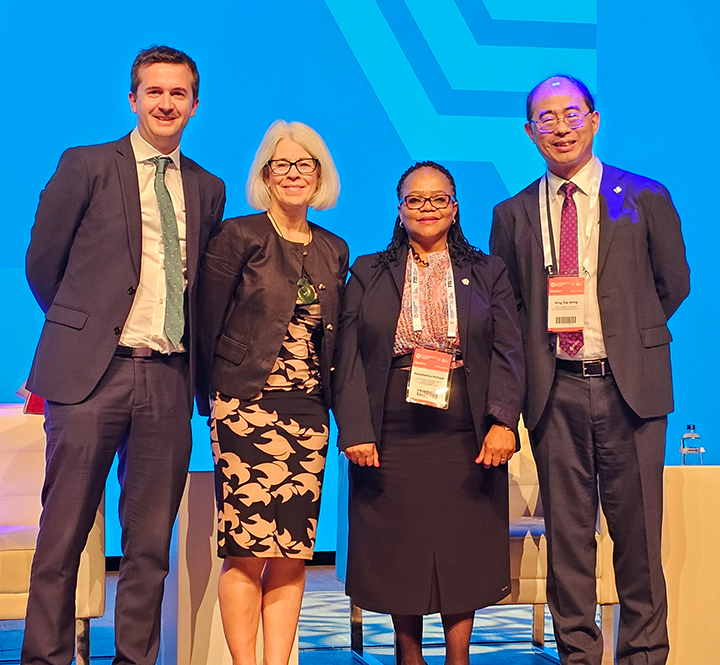
From left: Chris Havergal, Times Higher Education Editor; Prof Dawn Freshwater, Vice-Chancellor of the University of Auckland; Dr Matsheliso Molapo, Vice-Principal: Strategy, Risk and Advisory Services; and Prof Wing-tak Wong, Deputy President and Provost of Hong Kong Polytechnic University
The University of South Africa (Unisa) continues to make a meaningful contribution to global discourse and action on sustainable development and the future of higher education. The 2025 Global Sustainable Development Congress (GSDC) is currently under way in İstanbul, Türkiye.
As a regional partner, Unisa’s expert 13-member delegation to the international stage comprised a multi-disciplinary team, which included institutional leaders, researchers and academics who participated in high-level discussions related to the United Nations’ Sustainable Development Goals (SDGs), digital transformation, public health and research innovation. In just the first few days of the congress, Unisa was featured in three major sessions, reinforcing its role as a driver of inclusive, African-centred solutions to global challenges.
In a high-level panel discussion on the role of universities in advancing the SDGs, Dr Matsheliso Molapo, Vice-Principal: Strategy, Risk and Advisory Services, shared the stage with Prof Dawn Freshwater, Vice-Chancellor of the University of Auckland, and Prof Wing-tak Wong, Deputy President and Provost of Hong Kong Polytechnic University. Times Higher Education Editor, Chris Havergal, facilitated the session.
Drawing on Unisa’s unique history/herstory and mandate, Molapo noted, "At Unisa, sustainability is not a trend – it is a core value. Long before the global community articulated the SDGs, our institution was already deeply engaged in research, teaching, and engaged scholarship that promoted equity, social justice, and transformative development. This is part of our enduring institutional DNA. Our Catalytic Niche Areas – a vision articulated by our Principal and Vice-Chancellor, Professor Puleng LenkaBula – were intentionally crafted to respond to African and global priorities."
She further highlighted Unisa’s strengths in open, distance and e-learning (ODeL) and called for universities globally to build capacity through innovative systems and long-term partnerships. "We cannot advance the SDGs in isolation," she said. "Universities must move from competition to collaboration. Our shared future depends on institutions co-creating solutions that serve humanity."
In another session, Dr Xolani Makhoba, senior lecturer in the College of Agriculture and Environmental Sciences, took to the country stage at the congress and presented on "How biotechnology research is transforming the fight against disease". He showcased Unisa’s contributions to tackling public health challenges in underserved communities through applied biotechnology.
"Our research focuses on practical innovations – using molecular diagnostics, environmental monitoring, and genomics to address real health threats," said Makhoba. "We are not just producing data; we are translating science into community resilience." He called for further investment in interdisciplinary health research and capacity-building in biotechnology across Africa.
Letlhogonolo Marumolwa, Acting Executive Director: Institutional Intelligence, expertly facilitated a dynamic panel session on Unisa's digitalisation strategy. The discussion explored how digital tools and strategies are enhancing student success, research excellence and institutional agility.
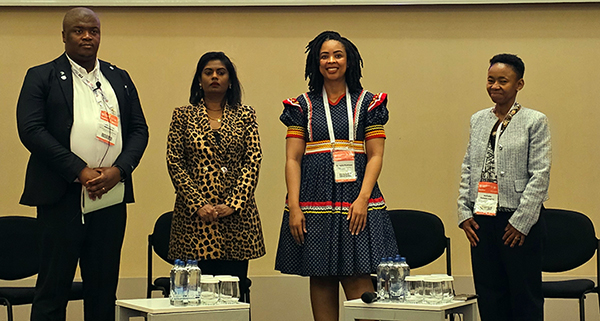
The facilitator and panel for the discussion of Unisa’s digitalisation strategy and its contribution to improving academic achievement, from left: Facilitator Letlhogonolo Marumolwa, Acting Executive Director: Institutional Intelligence, and panel members Dr Genevieve James, Deputy Director: Community Engagement, Dr Mampilo Phahlane, Director: School of Computing, and Mathabo Nakene-Mginqi, Chief Information Officer and Vice-Principal: ICT
Mathabo Nakene-Mginqi, Chief Information Officer and Vice-Principal: ICT, underscored the scale and complexity of delivering a seamless digital experience to over 400,000 students. "Our strategy is not only about expanding infrastructure – it’s about designing smart systems that support each student’s academic journey from onboarding to graduation," she explained. "We are developing intuitive, scalable digital platforms, supported by the university’s AI roadmap, that ensure equitable access to learning and services."
Dr Genevieve James, Deputy Director: Community Engagement, shared Unisa’s innovative digital technologies in managing sustainability-oriented and engaged scholarship projects. She described Unisa’s engaged institutional model, which facilitates collaboration towards enhanced development action: "We are an open, engaged and connected university, one that brings the higher education sector, government, business and civil society into a change-making ecosystem that addresses pressing sustainability challenges," she said. "Our custom-built app with business intelligence capabilities now tracks engaged scholarship projects – from proposal to funding and progress reporting – all on a unified platform. We can assess our practice and presence towards enhanced academic and development outcomes through the engaged scholarship app and business intelligence."
Dr Mampilo Phahlane, Director: School of Computing, added a strong ethical perspective on Unisa’s approach to artificial intelligence. "We see AI not as a replacement for educators but as a partner in supporting student success," said Phahlane. "Our AI principles prioritise student retention, academic integrity, data privacy, and responsible governance. We are deeply aware of the context in which our students live – limited internet access, student debt, and digital exclusion – and our solutions are shaped by that reality. Furthermore, the higher education environment has regulations we must adhere to when engaging these technologies."
Unisa’s participation at the GSDC proved both strategic and impactful. The steady stream of interest from global stakeholders and potential partners affirms the university’s relevance on the international stage. This engagement opens new avenues for collaboration, research, and academic exchange.Bottom of Form
* By Nolwazi Mwabi, Director, Department of Institutional Advancement
Publish date: 2025-06-19 00:00:00.0


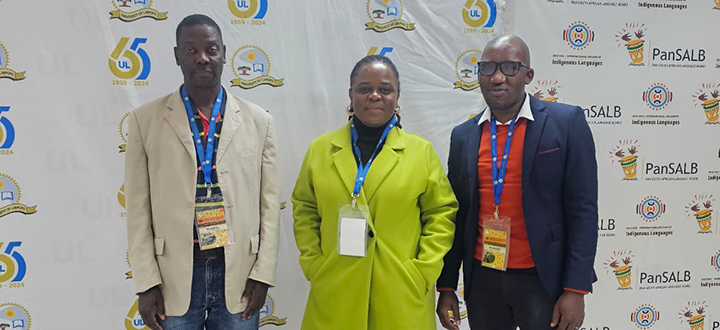 Unisa makes significant impact at ALASA 2025 Conference
Unisa makes significant impact at ALASA 2025 Conference
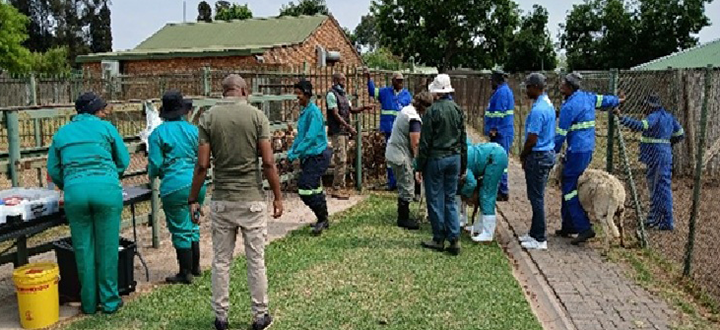 Work-integrated learning practice – extending beyond traditional distance education
Work-integrated learning practice – extending beyond traditional distance education
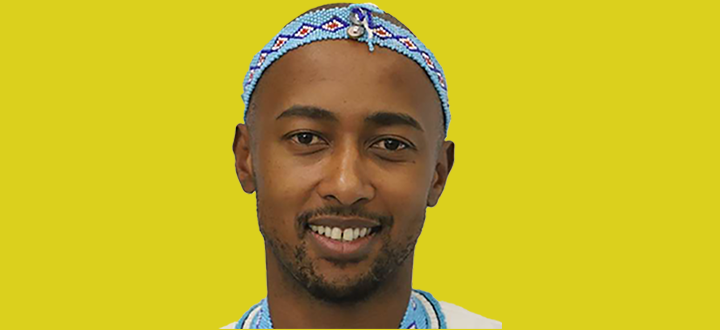 Computer scientist and ICT specialist to share 4IR insights at Unisa's CNA Research Symposium
Computer scientist and ICT specialist to share 4IR insights at Unisa's CNA Research Symposium
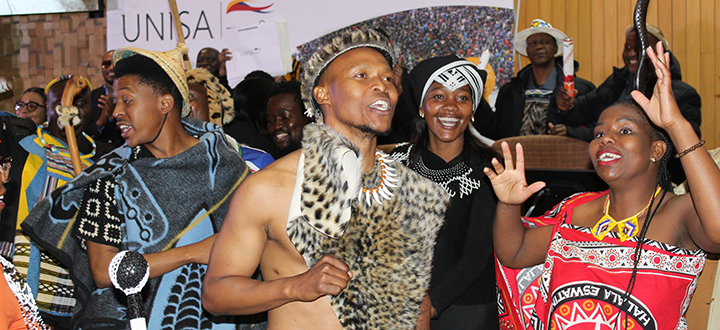 Unisa champions inclusivity with landmark language policy
Unisa champions inclusivity with landmark language policy
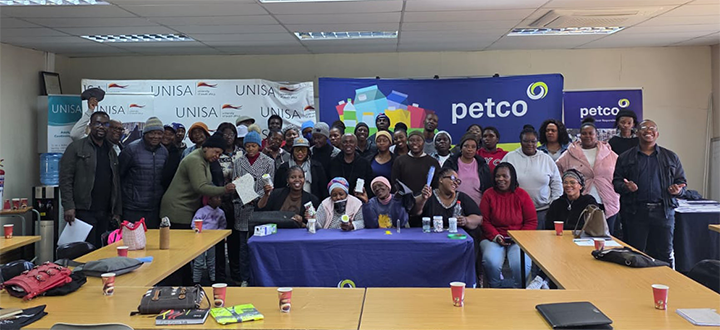 Unisa empowers Daveyton community through recycling workshop
Unisa empowers Daveyton community through recycling workshop